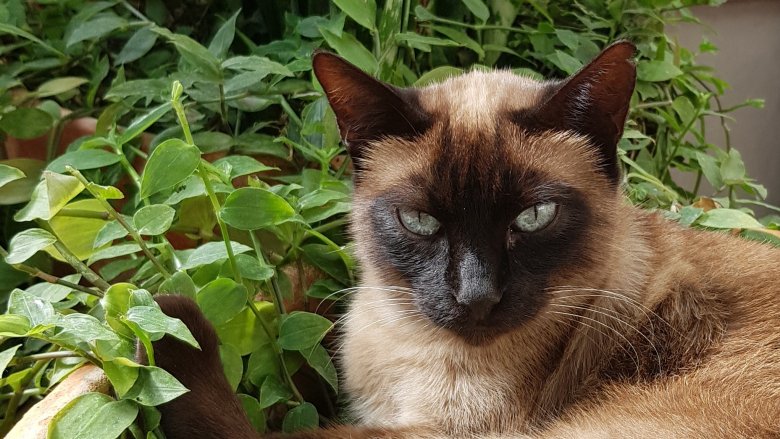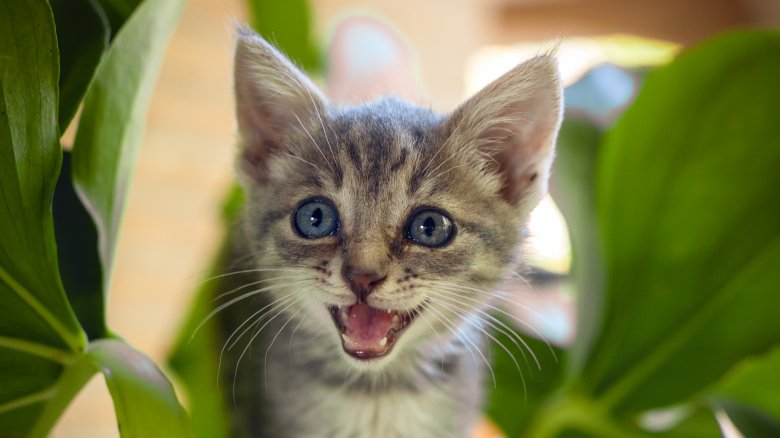The Most Poisonous Houseplant To Cats
Unlike our canine friends, who will quite happily make a meal of anything that smells awful or can be found in a garbage can, cats are a lot more discerning about what they will put in their stomachs. Fish based canned cat food? Check. Chewy cat treats? Check. Milk? Usually. But cats do sometimes eat things that aren't good for them, and owners who aren't aware of the common house cat's affinity for the common houseplant may not know there's a danger until it's too late.
Weirdly, some cats will eat plants, even though they are clearly not omnivores. In fact according to the Pet Health Network, most plants will cause some sort of gastrointestinal upset in felines, including that "cat grass" you can buy in pet stores. Even so, most plants aren't deadly, even though you may want to discourage your cat from eating plants of any kind just based on the fact that no one likes to clean up cat vomit or cat diarrhea.
Do you have any houseplants that could poison your cat?
Some plants might kill your pet, though, so if you have houseplants and cats you need to know exactly what kind of houseplants you have and whether or not they might cause harm. And remember, just because your cat hasn't tried snacking on your philodendron so far doesn't mean one day she won't wake up one day and think to herself, "Hmm, I wonder what that philodendron tastes like?"
Philodendrons, by the way, will cause oral pain in cats, but aren't life threatening. Much worse are plants in the lily family, which include tiger lilies, day lilies, and Easter lilies, among others. Your cat doesn't have to eat much to end up with a lethal dose, either — just two or three petals or leaves or a little bit of pollen. A cat might even die from drinking water out of a vase full of cut lilies. So if you love your cat, keep those lilies out of your house. And check into the toxicity of your other houseplants, too, just to be on the safe side.

